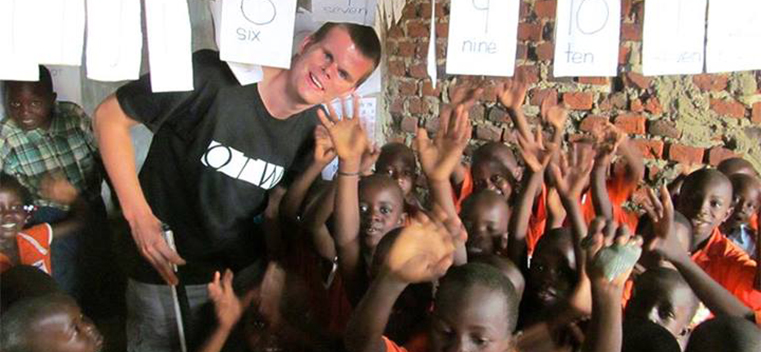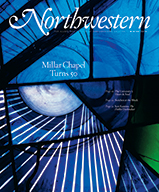
Ready and Able
Tell us what you think. E-mail comments or questions to the editors at letters@northwestern.edu.
Ever wonder about those strange designations we use throughout Northwestern to identify alumni of the various schools of the University? See the complete list.
Find Us on Social Media
Junior pushes the discussion on ability status.
Tommy Carroll lost his eyesight to a rare form of cancer as a toddler, but that’s not what defines the junior journalism major. He’s a high-achieving, ultra-involved student leader, just like his peers.
Last summer Carroll explored microfinance opportunities on a Global Engagement Studies Institute trip to Uganda. A percussionist, he headlined last spring’s HarmonyFest, the Phi Mu Alpha benefit concert, playing the congas and bongos. A runner and skateboarder, he once met skateboarding legend Tony Hawk and last year starred in a promotional campaign for skateboarding safety gear.
At Northwestern, Carroll has worked with the University on issues of accessibility. Thanks in part to his efforts, several crosswalks near campus have been updated to include audio signals for visually impaired pedestrians. He also worked with the web communications team to help make the Northwestern website more accessible.
Beyond physical and digital changes, Carroll has pushed the conversation on ability status. He penned a Daily Northwestern editorial last spring after the University introduced plans for diversity-related course requirements that he says insufficiently covered ability status.
“The natural assumption in America is that people with physical impairments will be able to accomplish less than the average person and that any ‘approximation of normal ability,’ as I’ve heard it called before, should be applauded to make the poor souls feel better,” Carroll wrote. “That’s the stereotype I want to break down.”



 Facebook
Facebook Twitter
Twitter Email
Email


